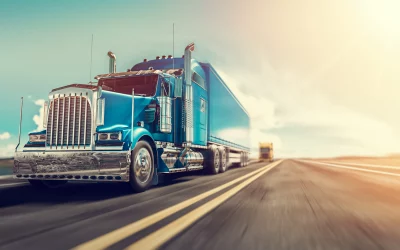How Do Semi Truck Weights Cause Accidents?
Several variables may influence the severity of an accident. The severity of an accident victim’s injuries is determined by the speed at which they drive, the kind of collision, the location of a contact, and the size of the other cars involved in the accident. Given this, it’s reasonable to assume that if you’re in an accident with a semi-truck, your injuries will be more significant than if you’re in a collision with another car.
It is also essential to consider the load that the car is transporting. For example, there is a difference in the weight of a semi-truck without a trailer, with a trailer, and with a full load. With more than 100,000 accidents involving big rigs on US roads each year, it’s important to understand how the weight of semi-trucks adds to the hazards they bring.
Free Consultation
In Person | Phone | Zoom
Car Weights and Their Role in Accidents
We all know that the larger the car we ride, the more protected we are against major harm. We generally look at fuel economy figures when purchasing a car; however, bear in mind that the more fuel-efficient a car is to run, the less weight it contains.
Because greater weight equals more momentum, the heavier a car is, the longer it may stop. Even a seasoned truck driver may not have enough time to come to a complete stop before a collision.
Here are some key numbers to consider when it comes to truck accidents:
How much does an average car weigh? A small car may be as light as 4,500 pounds, a midsize car can be as heavy as 5,500 pounds, and a full-size car can be as heavy as 6,000 pounds. Minivans have a maximum weight of 6,500 pounds, compact SUVs and light pickups have a maximum weight of 7,000 pounds, and a full-size truck or SUV has 12,000 pounds. Remember that these weights vary and do not include passengers.
What is the average weight of a semi-truck without a trailer? Without a trailer, a tractor alone, often known as the cab, weighs between 17,000 and 22,000 pounds. In the meanwhile, the typical trailer weighs about 10,000 pounds.
What is the weight of an empty tractor-trailer? When a tractor and trailer are mounted together, they weigh around 35,000 pounds on average. The gasoline, oil, and hooking mechanisms are all part of this.
What is the weight of a fully-loaded semi? Federal regulations restrict the weight of a fully-loaded truck to 80,000 pounds. That’s a whopping 40 tons!
As these figures show, even the heaviest personal car, weighing up to 12,000 pounds, is no match for a tractor-trailer. A semi cab, for example, may weigh up to 5,000 pounds more than a big SUV or pickup car.
Big Rigs and Their Impact on Our Lives
Thousands of trucks pass across our roads every day, and no one wants to be stranded behind or between them. We typically perceive trucks to be a nuisance when we encounter them on the road since they are difficult to see around. We often pass them only to get out of the way, but this does not eliminate the possibility of a truck collision.
People often ask why there are so many trucks on the road, but when you think about it, trucks are the lifeblood of our economy. Trucks are essential for ensuring that we can buy and deliver products locally.
Trucks are commonly used to deliver:
Groceries – The food we buy at the supermarket does not arrive on its own, and most of us do not live near a food factory. Freshly picked foodstuffs are transported by trucks from one end of the nation to the other.
Raw materials – Every object we use in our homes comprises dozens of parts. Truckers bring everything from our toaster to our dishwasher, our apparel to our medications, and our mobile phones to laptops to manufacturers who turn them into finished goods.
Gasoline – Tanker trucks transport fuel to our gas stations, allowing us to go where we need to go when filling up our cars. To keep our houses warm, tankers also transport propane and heating oil.
Tractor-trailers have an impact on practically every aspect of our life, even those we don’t consider. Furthermore, the trucking business employs hundreds of thousands of people and has a considerable economic effect. According to some estimates, Trucks transport 60,000 pounds of goods to each American every year.
Trucks’ Hazards on Our Highways
The following are some of the factors that might lead to a truck accident:
Inadequately trained drivers — Given the nationwide lack of truck drivers, it’s understandable that a corporation would cut corners on training. Others on the road may be put at risk due to this.
Sleep rule violations – Whether it’s because of a “secret” business policy of disregarding Federal Motor Carrier Safety Administration (FMCSA) requirements about breaks and sleep, or because a driver knowingly ignores these laws, they’re harmful. A tired or sleepy driver has the potential to cause a major accident. Rest times should be required.
Loading errors — When a trailer is incorrectly placed on a truck, it may cause major complications. An imbalanced load might cause a trailer to move when making maneuvers, resulting in a rollover disaster.
Vulnerabilities – Blind spots cause over 40,000 car accidents each year. In contrast to an car, a truck has four blind spots. These may be found in front of the car, behind the truck, and at each side mirror. Blindspot collisions in cars are becoming less prevalent due to technological advancements, but trucks have yet to catch up.
These aren’t the only issues that may lead to tractor-trailer accidents on the road, and they happen. Accidents may also be caused by common concerns such as failing to yield, running red lights, drunk drivers, and bad road conditions. Semi-truck accidents are also caused by distracted driving, tailgating, and speeding. During a collision, a fast track, particularly one carrying full weight, may cause significant injuries and, in rare circumstances, fatality.
Accidents involving other large trucks
Don’t forget that other enormous trucks on our roads might cause tragic collisions. Car operators may also have issues with dump trucks, trash trucks, and big delivery cars. These burdens aren’t always distributed equally. While drivers must undergo specific training, these enormous cars are inconvenient. Cargo spillage might generate extra traffic dangers if the car turns over.
Additional Hazards and the Weights of Tanker Trucks
Tanker trucks are generally heavier than ordinary semi-trucks.
Tanker trucks may convey the following items:
Fuels – Tanker trucks are used to deliver jet fuel, gasoline, and diesel fuel. If this cargo spills in an accident, explosions, and flames are possible.
Chemicals – When huge amounts of chemicals, such as those used in industrial settings and agriculture are required, tankers are often employed.
## Milk – Many have seen milk trucks on the highway. Additional refrigerants are used in these cars to keep the items from spoiling while in transit.
Dry Goods – Tanker tankers often transport plastic pellets, cement, processing grains, and sand.
When these cars are engaged in a collision, they offer extra hazards. When a tanker of any sort is involved in an accident and flips over, roads might be stopped for hours while the debris is cleaned up. The risk of fire rises when cars are transporting hazardous chemicals or fuels. Crushing injuries and disfiguring burns are possible outcomes of these events.
Trucking Accidents and Insurance Claims
Victims of a highway accident involving a tractor-trailer car need answers and assistance. When seeking medical help, the sufferer must put all of his or her efforts into recuperating. They may, however, get a deluge of unexpected phone calls quickly after an accident, upsetting their much-needed slumber! Within 48 to 72 hours following an accident, particularly if the trucker was at fault, the victim is likely to begin receiving phone calls from insurance adjusters. Yes, adjusters refer to a group of people.
Several insurers may be involved in the claims procedure after a trucking accident. You’ll start by dealing with your insurance carrier. Because many truckers are self-employed, they may carry their liability insurance. However, if the accident was caused by a rule violation, a road hazard, or an improperly loaded trailer, multiple parties may share liability.
None of these insurance companies are responsible for ensuring that you get the money you deserve for your injuries or car damage. They’re all trying to achieve the same goal: paying as little as possible on your claim. This is one of the most important reasons to consult with a truck accident lawyer as soon as possible after your accident.
Following a truck accident, insurance companies may offer a quick settlement. Beware: Regardless of what they tell you, the first settlement offer will not be their best offer! They likely hope you’ll accept the settlement without first contacting a lawyer and asking them to clarify some of the settlement agreement’s language.
One reason for this is that you usually relinquish your right to pursue further claims when you accept a settlement. That means you’ll lose even if your losses exceed the settlement amount—you won’t be able to file an additional claim if your medical bills, lost time at work, and other expenses exceed the settlement amount.
Lawyers for trucking accidents can assist you in defending your rights.
Following a truck accident, you have the right to be reimbursed for any expenses or losses incurred as a result of your injuries. Due to the size and weight of a semi-truck, your injuries will most likely take weeks, months, or even years to heal. Estimated future earnings losses, ongoing medical care, and other expenses associated with your injuries, which may not be readily apparent in the immediate aftermath of an accident, are always a concern.
Working with an experienced truck accident lawyer can be extremely beneficial in this situation. An attorney with experience handling truck accident cases is familiar with the experts in this field. They can assist them in determining the long-term prognosis of your injuries, the time it will take you to fully recover, and the future costs associated with your injuries.
Furthermore, a lawyer with this background is familiar with the strategies used by insurers to avoid liability. That is a win-win situation for you. You benefit from your lawyer’s knowledge and experience while he or she does everything possible to ensure that you are treated fairly.
Victims should also keep in mind the following: Request a fast, free consultation with an attorney who handles nationwide truck accident cases to get immediate answers to your questions.
In most cases, lawyers handle truck accident cases on a contingency fee basis, so you won’t have to pay anything out of pocket for legal fees. This means that the lawyer won’t get paid unless you get a settlement on your behalf. That’s right: they aren’t paid until you are.
Regardless of the weight of the semi-truck that caused your injuries, you will require assistance in dealing with insurance companies and ensuring that you receive the compensation you deserve. Following a truck accident, the best thing you can do is call for a free consultation with an experienced lawyer right away. Protect your rights and be aware of your options moving forward!







